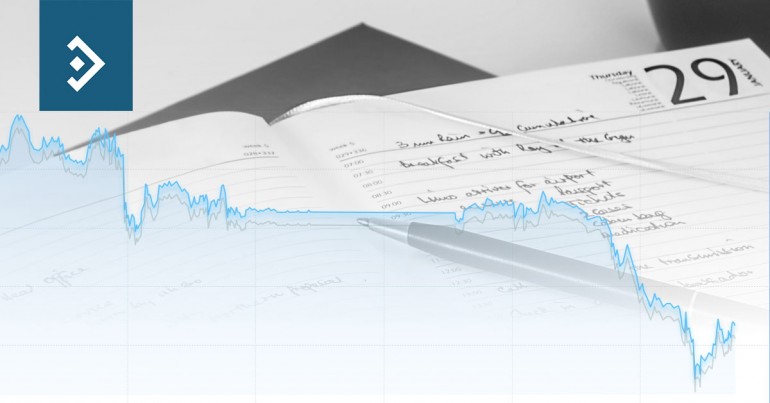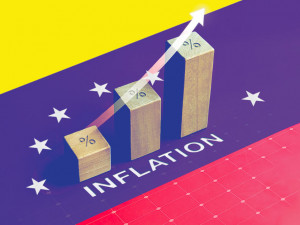
It is very clear that this year will be characterised by political events. A key consideration, that our team is often asked about, is how are markets going to react to these events?
Clearly, Brexit is expected to be the major ongoing event, but what will cause the short-term volatility where we may see more violent moves and corrections?

Dutch election to set the tone
Well, taking things in chronological order, the upcoming Dutch election could see the first lurch to the right. The Dutch are supposed to be the amongst the most liberal of Western Europe, but Geert Wilders, a right wing firebrand who can now be considered something of a veteran politician, has turned Dutch politics on its head. Currently, polls have him neck and neck with incumbent Prime Minister Mark Rutte, a one-time ally, but now a fierce opponent of Wilders.
According to the Economist, Dutch politics are a bellwether for Europe. Developments in the Netherlands tend to be followed across the region a few years later. Some even say that Wilders invented ‘Trumpism’ (the practice of campaigning through social media), which is more popular with younger voters. Welders is also on the same page as Trump regarding Islam. He is standing a on a very nationalistic platform that has been seen as a reaction to the “shackles of brussels”. Welders is anti-hero and recently appeared on UK news calling for an end to uncontrolled immigration and for the Dutch to take control of their monetary policy.
Ahead of the vote on March 15th, more volatility can be expected for the single currency. Dutch politics has been characterised by coalition governments. Should one be formed again, it may add to a sense of disillusionment among voters, who may see more deals being done behind closed doors and that may fuel further right wing populist backlash.

Macron pulling ahead but le Pen still “in the game.”
The French election is a little further away, but at least there will be an outright winner. The first round of voting was focused on three candidates. First, there is François Fillon, a right of centre conservative who served as Prime Minister under Nicolas Sarkozy. He was seen as the favourite to win the election but his campaign has been derailed by the scandal over his wife’s job with the legislature, where she was paid well but didn’t do much work. Second, there is popular modernist candidate, Emmanuel Macron, who is now seen as the main opponent of Marine le Pen. She is the right wing National Front leader, who shares similar policy goals to Geert Wilders in Holland.
The Euro may gyrate ahead of the first vote on 24th April. At this point, it is likely that le Pen and Macron will proceed to the runoff on May 7th. Opinion polls will be scrutinised for any sign of a “Brexit style” surge in populist support for le Pen. A le Pen victory, especially if it were to be declared on the Sunday night, may well see a Euro crash reminiscent of the drop Sterling suffered last June, but quite possibly even more violent. Equally, if we see a resounding victory for Macron, many may call a bottom for the single currency.

Eurozone faces massive uncertainty
Away from politics, Monetary policy is causing rifts in the Eurozone with the ECB mandating the bank to create policy for the whole region. There a has been plenty written about “one size fits all” but in the area of monetary policy it really doesn’t work. One “Black Swan” event here could be the Euro in danger of collapse, but that is the nature of black swans. No one sees them coming!
President Trump recently accused the Germans of taking advantage of a weak Euro to export more to the U.S., but there really is nothing they can do to influence policy. Their economy is suffering more than any advantage they are gaining. In fact Chancellor Merkel has been quoted as saying that Germany could do with a stronger Euro and in a pointed remark aimed at Trump she said that “ they had been left with no tools” to drive monetary policy. Inflation is starting to pick up in the Eurozone but any tightening of monetary policy is a long way off.
Another possible Black Swan is our old friend Greece. We are all well aware of the problems they face, but even the bundesbank is beginning to feel sorry for their predicament, with one official saying they need to be “cut some slack”. Having said that, they are struggling to cope with the current austerity measures and with all the bad loans they have on their books, especially mortgages, a bank failure is not our of the question.
Figures released recently show that cross border lending between Eurozone members has dwindled alarmingly as the solidity of a number of banks, even the mighty Deutsche Bank, is called into question. Italy has an ongoing constitutional crisis to solve as well as bad loans which have brought the oldest bank in the world; Montreal dei Paschi di Sienna to its knees.
In summary, the Eurozone faces three major challenges in the next 18/24 months: Brexit, the value of the Euro and inflation

Asian economic activity continues to grow
In Asia, China casts a huge shadow. Everything they do impacts the rest of Asia and very little is happening in the region that China cannot influence. However, the Chinese Government is starting to act more responsibly in important areas such as currency and pollution.
Taking pollution first, China is starting to accept global accords on greenhouse gases and act in accordance with their requirements. The main goal has been to close coal consuming mills, smelters and factories, changing to more sustainable energy. There is still a long way to go though – there was a red alert in Beijing (the highest of four levels) as recently as January 5th this year. China is happy to be considered the ‘factory of the world’ but still feels that it deserves to be receive special treatment with regard to pollution.
One area that they have made verifiable progress is in the area of the value of the Yuan. Past successive U.S. Treasury Secretaries have come close to labelling China a currency manipulator, but have decided against out and out declaration. In his recent ill-informed rant about currencies, President Trump called China a grand master of Currency Manipulation. In the event that the U.S. did formally charge China, tariffs would be introduced on all their exports to America, so it’s likely Trump will take a few quiet steps back from his proclamation.
The most recent data defends China’s assertion that it’s currency value is a consequence of its monetary policy, designed to manage the domestic economy. This is a sentiment echoed by the bank of Japan, who commented (following a different attack from Trump!) that ultra-loose monetary policy is used to stave off deflation and their weak currency is a byproduct of that. The Yen is also a main “risk on / risk off” currency where their low inflation economy allows investors to hold a currency position in times of high global uncertainty.
The Australian economy is now inextricably linked to China. High commodity prices and a weak currency have driven record trade deficits in the past two months. Globally, interests rates are starting on an upward trend as Central Bankers focus on inflation. The Reserve Bank of Australia signalled its belief that official rates at 1.5% were at the bottom. There is a great deal of caution around the G20 regarding growth, but most feel that the downwards cycle of the Financial Crisis might now be over.

U.K. reaching the Brexit point of no return
Finally, saving the biggest upheaval to last, we come to the U.K. Brexit is to be a reality and even the biggest Remainers have now had time to accept that Britain will leave the EU. To a certain extent, the EU only has itself to blame as it has appeared too exclusive and high handed for too long. Britain has never sat comfortably with the EU ideal and Brexit was probably inevitable sooner or later.
What is going to happen to the currency, the economy and the man in the street? No one really knows, but there is no shortage of theories! There is common consensus that one size does not fit all – we only need to consider the idea of tax unification, which will always be an issue because a number of countries simply cannot be trusted! Do we need to revisit the Greek issues?
However, the U.K. will survive Brexit. Of course we will. Recently, the domestic economy has started to turn lower, but that is still largely sentiment driven. Perceptions over the Brexit negotiations, preceded by the imminent triggering of Article 50 of the Lisbon Agreement, keep Sterling under pressure but until we see the consumer really start to pull back then any moves are more likely to be temporary.
Although it is easy to make a case for the dollar to rally, given the expected interest rate hikes to come, the Eurozone is still mired as can be seen above. While 1.2000 is a possibility for Cable, there is a risk of parity, or beyond, for the single currency. Thus 0.8330 is pivotal for EUR/GBP since it is a bellwether for the relative strength of the two currencies relative to the strongest.



